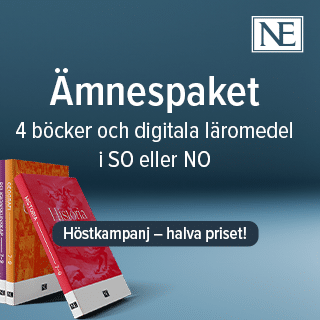Vocational Teachers’ Professional Competence at the Intersection of Two Regimes of Competence: The case of Sweden
Sofia Antera har i sin avhandling utforskat yrkeslärares kompetens utifrån deras egna uppfattningar samt rektorernas perspektiv.
Sofia Antera
Professor Marianne Teräs, Stockholms universitet. Docent Staffan Nilsson, Stockholms universitet. Helena Rehn, Stockholms universitet
Professor Petri Nokelainen, Tampere University, Finland
Stockholms universitet
2023-05-05
Vocational Teachers’ Professional Competence at the Intersection of Two Regimes of Competence: The case of Sweden
Institutionen för pedagogik och didaktik
Vocational Teachers’ Professional Competence at the Intersection of Two Regimes of Competence: The case of Sweden
The high demand for vocational teachers in Vocational Education and Training (VET) in Sweden has led to their recruitment in the early stages of vocational teacher studies. Entering into this new community of practice, vocational teachers tend to bring in experience from their previous occupational practice. This dissertation explores vocational teachers’ competence through their own perceptions and through the school principals’ perspective, addressing important competence areas, as well as how professional competence is defined and understood by vocational teachers themselves.
This dissertation is a compilation thesis of three Studies. Study I is a Conceptual Analysis Method (CAM) of the concept of professional competence of vocational teachers. Study I demonstrated that the main attributes of professional competence include the situated and developmental character of professional competence and its relationship with action. A distinct relationship between professional competence and professionalism, performance, and qualifications was identified as significant to the concept.
Study II, a questionnaire of important and achieved competence, answered by 370 participants, showed that good communication with students and assessment of students’ knowledge, skills and abilities are the two most important and achieved competencies for vocational teachers. On the contrary, previous teaching experience and working experience with migrants were placed among the least important. Moreover, Study II presented results on vocational teachers’ challenges, with students that need extra support being the challenge affecting teachers the most.
Study III, an interview study with 14 vocational teachers, outlined the regime of competence for vocational teachers. The regime of competence is a set of principles that recognise membership in a community. According to the findings, the regime of competence for vocational teachers includes up-to-date vocational competence, but also interpersonal competence, meaning communication skills and the construction of a teacher-student trust relationship. Part of this regime is also the teacher’s ability to match the student with the workplace, contributing to higher quality work-based training for the student. Finally, a continuous development attitude is included.
The combined findings from the three Studies indicated that teaching competence has a high use value due to its relevance with the vocational teachers’ work, but low exchange value as it is not a formal requirement for teachers’ employment. On the contrary, vocational competence have high exchange value, as it is required for recruitment. The analysis of the combined findings concluded that different competence areas are prioritised based on relevance to the teaching practice, formality and individualpreference. With these three aspects affecting teachers’ choices of what competence they would develop, there is a risk for unbalanced identities.
In conclusion, understanding what is needed for the job of a vocational teacher can facilitate better preparation for vocational teachers. Supporting teachers aligning their previous competence with the regime of competence instructed by the practice of vocational teaching can be assisted through the recontextualisation of previous experiences to achieve relevance to the new tasks.
Relaterade länkar

Fritidshem
 Åk F–6
Åk F–6 Matematikångest
 Åk 4–Vux
Åk 4–Vux 






